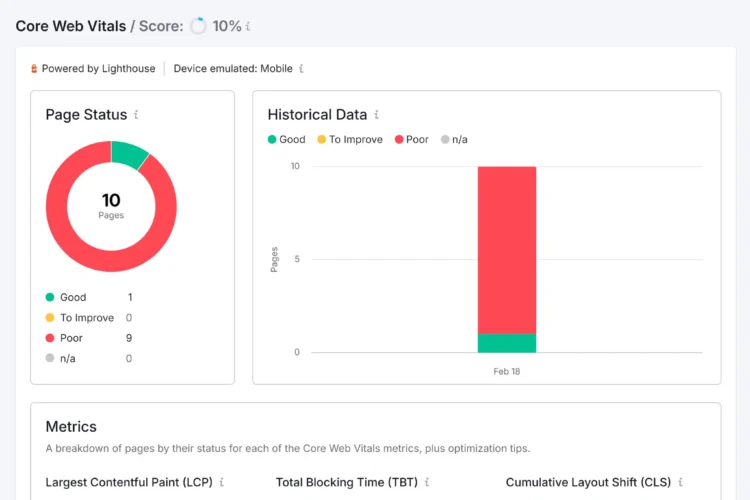
Introduction
The way people search online is changing rapidly — and voice search SEO is leading that evolution.
By 2025, more than half of all online searches are expected to be voice-based. With smart assistants like Google Assistant, Alexa, and Siri integrated into daily life, optimizing for conversational queries is no longer optional.
In this article, you’ll learn what voice search SEO is, why it’s crucial in 2025, and the exact steps to optimize your content for voice-driven queries.
1. What Is Voice Search SEO?
Voice search SEO is the process of optimizing your website to appear in search results that are triggered by spoken queries rather than typed ones.
When users ask their devices questions such as “What are the best SEO tools for small businesses?” or “How do I improve my site speed?”, Google pulls concise and relevant answers directly from optimized pages—often from featured snippets.
Example:
If your article contains a clear answer to “What is voice search SEO?”, it has a higher chance of being read aloud by a voice assistant.
2. Why Voice Search Matters in 2025
The rise of voice technology has changed how users find and consume information. Smart speakers, mobile assistants, and car voice systems are now part of everyday routines.
Here’s why voice search SEO is more important than ever:
- Convenience: Users can search hands-free while multitasking.
- Speed: Voice queries deliver instant results.
- Local focus: Over 60% of voice searches are location-based.
- Growing usage: The global use of voice assistants continues to expand annually.
Google’s focus on understanding intent and context means optimizing for voice is essential for maintaining visibility in search results.
3. How Voice Search Differs from Traditional SEO
| Aspect | Traditional SEO | Voice Search SEO |
|---|---|---|
| Query Type | Short keywords (“best SEO tools”) | Conversational phrases (“What are the best SEO tools for beginners?”) |
| Search Intent | Informational | Question-based and specific |
| Result Format | Text on SERP | Spoken response |
| Optimization Focus | Keywords | Natural language and context |
| Ranking Style | Multiple results | One featured answer (Position Zero) |
4. How to Optimize for Voice Search SEO
A. Focus on Conversational Keywords
Voice queries are more natural and typically longer than typed searches.
Instead of “SEO audit,” users might ask, “How can I perform an SEO audit on my website?”
Use long-tail, question-based keywords that reflect spoken language.
Tools like AnswerThePublic, AlsoAsked, and Google’s “People Also Ask” can help identify conversational queries.
B. Optimize for Featured Snippets
Most voice search results come directly from featured snippets.
To optimize for them:
- Use question-based headings (H2 or H3).
- Provide short, clear answers (40–60 words).
- Format lists and step-by-step content with proper HTML tags.
When Google can easily extract concise answers, your content becomes more eligible for voice search results.
C. Improve Page Speed and Mobile Usability
Voice searches primarily occur on mobile devices, making performance a ranking factor. Use Google PageSpeed Insights, Lighthouse, or GTmetrix to test your site.
Key improvements include:
- Reducing load time to under 2.5 seconds
- Optimizing images and code
- Ensuring mobile responsiveness
D. Optimize for Local Voice Search
Since the majority of voice searches have local intent, local businesses must adapt.
- Optimize your Google Business Profile.
- Use location-specific keywords (e.g., “near me,” “in [city name]”).
- Keep NAP (Name, Address, Phone) consistent across listings.
Example:
Users asking “Hey Google, find an SEO agency near me” will be directed to well-optimized local profiles.
E. Use Structured Data (Schema Markup)
Adding structured data helps search engines understand your page content better, improving your chances of being selected for voice results.
Implement relevant schema such as FAQ, HowTo, or Article markup.
Structured data also enhances your visibility in rich results and featured snippets.
F. Write Naturally and Clearly
Voice search results prioritize clarity and conversational tone over keyword density. Instead of writing for search engines, write the way your audience speaks.
For example:
- Avoid: “Voice search SEO 2025 best ranking optimization guide.”
- Use: “What are the best ways to optimize for voice search SEO in 2025?”
G. Build E-E-A-T (Experience, Expertise, Authoritativeness, Trustworthiness)
Google’s ranking systems rely on E-E-A-T signals. Strengthening these factors helps you rank better across all search types, including voice.
To improve E-E-A-T:
- Include author credentials
- Cite trusted sources
- Maintain transparency and accuracy
- Gather customer reviews and brand mentions
5. Tools to Help You with Voice Search SEO
Here are some tools that simplify the optimization process:
- Google Search Console – for performance and indexing insights
- AnswerThePublic – to discover natural question-based keywords
- Ahrefs or SEMrush – for analyzing SERP and snippet opportunities
- Google PageSpeed Insights – to monitor Core Web Vitals
- Schema.org Markup Generator – for implementing structured data
FAQs About Voice Search SEO
1. What is voice search SEO?
Voice search SEO is the process of optimizing content for spoken queries so it appears in voice assistant results, focusing on conversational keywords and featured snippets.
2. How do I optimize my website for voice search?
Use natural language, improve mobile speed, add structured data, and create concise answers to common questions.
3. Is voice search SEO important in 2025?
Yes. With more users relying on smart assistants, voice search optimization is essential to maintain visibility and engagement.
4. Which tools help with voice search SEO?
Tools like AnswerThePublic, Google Search Console, and Ahrefs can help identify conversational keywords and track performance.
5. How does voice search affect SEO strategy?
Voice search requires a shift from keyword-heavy tactics to content that reflects how people naturally speak and ask questions.
Conclusion
Voice search is no longer a trend—it’s the future of how users interact with search engines. By implementing these voice search SEO strategies—focusing on conversational language, optimizing for snippets, improving mobile experience, and using structured data—you can stay ahead of competitors and capture the growing voice search audience. The sooner you adapt, the stronger your position will be in the evolving world of search.
Other SEO services include – SEO Agency in Madhapur | SEO company in Ameerpet | SEO services in Hitechcity | SEO services in kukatpally | SEO services in Bangalore





